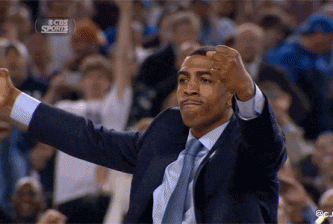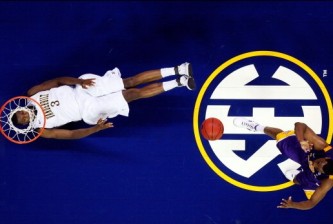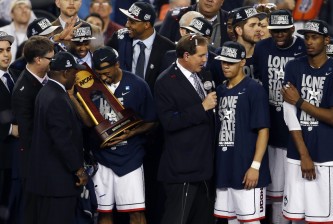
Ricky Tarrant was a lightly recruited guard out of the Birmingham suburb of Pleasant Grove. He signed with Tulane, and then surprised everyone by having a 1st Team All Conference season. Near the end of that year, Tulane lost their star in Kendall Timmons, and Tarrant had to take over the team down the stretch. He played well, but looked tired. By year's end he had played over 82% of the minutes for the Green Wave. For a freshman, that's a ton.
Coach Conroy promised to keep him better rested this season. The result? He played over 88% of the minutes (3rd most in the conference) and once again wore down at the end.
In the last 7 games of the season he made just 8-31 2s and turned the ball over more than 3 times a game.
Wearing down wasn't the only repeat from his freshman performance. In fact, he was largely the exact same player (not necessarily a bad thing when you're an All Conference performer). His assist rate, free throw rate, 2-pt% and 3-pt% all went slightly down. HIs turnover rate increased. There's an argument that he played worse as a sophomore but the changes in those numbers were so slight that it's hard to detect a difference (except in 2-pt%).
Now he's transferring to Alabama. So what should fans expect?
First, Tarrant was really undersized as a prep player. At 6-0, he may have weighed 160. This is one of the reasons high major programs stayed away. He's now listed at 6-2, 190, and genuinely looks the part. The change in his body in just two years is impressive, and he likely has the potential to become a very strong guard. Since he'll have to sit out a year he can train differently. He doesn't have to be ready on game day. So he can lift more. He can work out with different goals. It's one of the hidden advantages in redshirting. He needs to build his core and become more explosive.
The strength of his game is slashing and either finishing inside the arc or distributing. Being stronger and more explosive will help. The staff will need to wean him off the 3s as he's a 33% shooter from the arc but half his shots are 3s. At Alabama, he won't have to carry so much of the load, so he'll be able to focus on the core strengths of his game – breaking down defenses and making good things happen.
That will ultimately define his success at Alabama. If he's looking to play the same role as he did at Tulane, he probably won't be that successful. If he wants to hone his strengths and play with a higher caliber of player, then he could be an important cog on a good team.






















